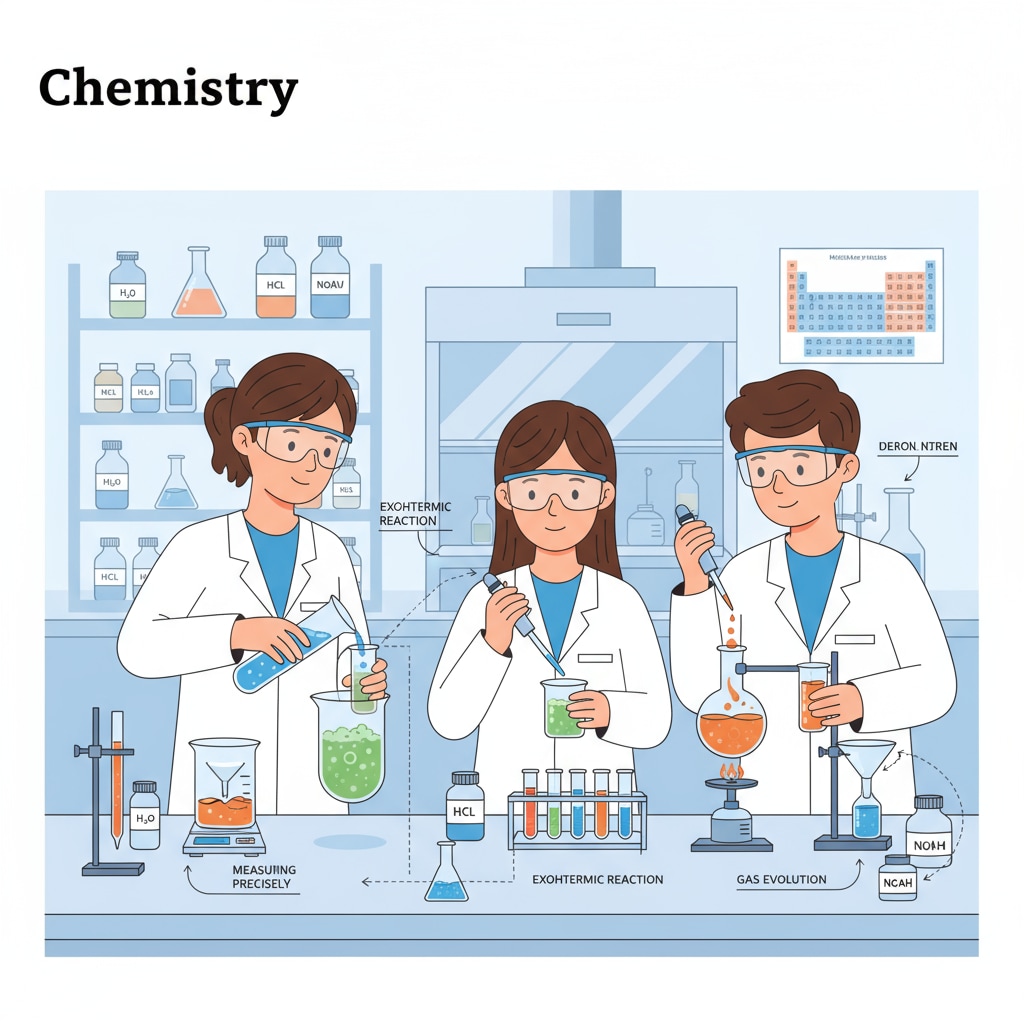Chemistry degrees and career planning can be a complex maze for K12 students. As they navigate through their academic journey, the choices they make regarding STEM (Science, Technology, Engineering, and Mathematics) subjects, especially chemistry, can have a profound impact on their future careers. In this article, we will explore the challenges students face, analyze different career prospects, and offer some practical advice to help them make informed decisions.

The STEM Dilemma for K12 Students
K12 students often find themselves at a crossroads when it comes to choosing STEM subjects. Chemistry, in particular, can be both fascinating and intimidating. On one hand, the study of matter, its properties, and reactions opens up a world of scientific discovery. On the other hand, the complex theories and laboratory work can seem overwhelming. For example, understanding chemical equations and conducting experiments with precision requires a strong foundation in mathematics and scientific thinking. This can be a hurdle for many students, as they try to balance their overall academic workload.

Career Prospects in Chemistry, Biology, and Computer Science
Chemistry offers a wide range of career opportunities. Graduates can work in research and development in the pharmaceutical industry, contributing to the discovery and development of new drugs. According to Careers in Chemistry on Britannica, chemists are also in demand in environmental science, where they analyze pollutants and develop solutions to protect the environment. Biology, another popular STEM field, has a strong focus on living organisms. Biologists can work in areas such as genetics research, conservation, or healthcare. Computer science, on the other hand, has become one of the most sought-after fields in recent years. With the rise of technology, computer scientists are needed in almost every industry, from finance to entertainment. They develop software, analyze data, and work on artificial intelligence projects.
However, each field has its own set of challenges and requirements. Chemistry often involves long hours in the laboratory, conducting experiments and analyzing data. Biology may require fieldwork, which can be physically demanding. Computer science is a rapidly evolving field, and professionals need to constantly update their skills to keep up with the latest trends.
Making Informed Academic and Career Decisions
To help K12 students make the right choices regarding chemistry degrees and career planning, it is essential to start early. Students should explore their interests through hands-on activities, such as science clubs or internships. This will give them a real-world understanding of what different careers in STEM entail. Additionally, students should seek advice from teachers, career counselors, and professionals in the field. They can provide valuable insights into the different paths available and the skills needed to succeed. Another important aspect is to consider the long-term prospects of each field. While some careers may offer high salaries initially, others may have better job security and room for growth in the future. As a result, students need to weigh their options carefully and align their choices with their personal goals and values.
Readability guidance: By using short paragraphs and lists, we have made the key points easy to understand. Each H2 section has a list or clear explanation. The passive语态 is kept to a minimum, and transition words like ‘however’, ‘for example’, and ‘as a result’ have been used throughout the article to make the flow smooth.


